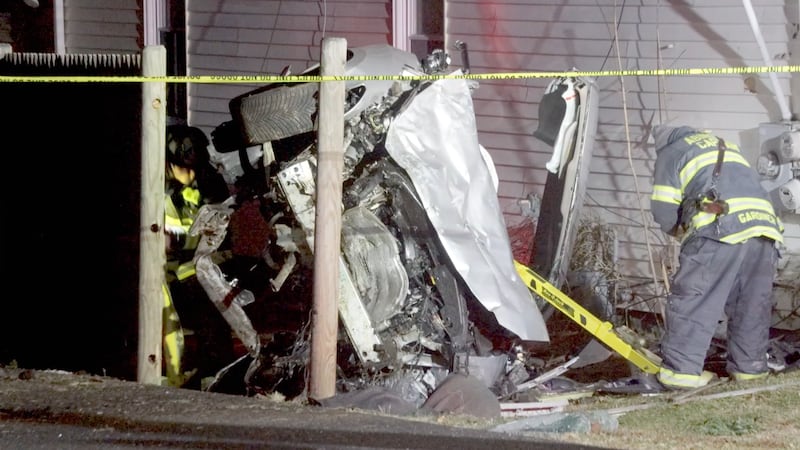BOSTON — For decades, thousands of Gulf War veterans have been suffering debilitating health effects of Gulf War illness. Many say they’re also struggling to get their healthcare claims covered by the Veterans Administration. A New England lawmaker is working to change that.
February marked the 30th anniversary of the first Gulf War, Operation Desert Storm. As 25 Investigates first reported earlier this year, researchers say Gulf War veterans were exposed to sarin nerve gas, pesticides, and anti-nerve gas pills that did more harm than good.
New Hampshire Senator Maggie Hassan says she knows some veterans aren’t getting the healthcare they need. The Democrat has reintroduced bipartisan legislation, along with Senator Thom Tillis (R-NC), to change the way toxic wounds are assessed.
“What have you been hearing from veterans that made you want to put forth this legislation,” asked Boston 25 News anchor and investigative reporter Kerry Kavanaugh.
“Just how difficult it is to get the VA to acknowledge that somebody’s healthcare condition is related to their service,” said Senator Hassan.
The bill is called the TEAM Act, or Toxic Exposure in the American Military.
Kavanaugh recently spoke one-on-one with Senator Hassan during a visit to the VA Medical Center in Manchester.
“An awful lot of them are getting denied care denied eligibility because right now, the rules make it a requirement that each individual veteran proves that their condition is related to toxic exposure while serving,” Hassan said.
Veterans and advocates say right now, the VA is denying toxic exposure claims tied to Gulf War illness at a rate of 80%. The VA could not confirm that figure for 25 Investigates.
Hassan says the TEAM Act puts the burden of proof on the VA and the National Academy of Sciences to determine if there’s a connection between a condition and a toxic exposure. And, Hassan says while that work is happening, any veteran who’s had toxic exposure will automatically qualify for care at the VA.
25 Investigates spoke with Gulf War veterans in February. They told Kavanaugh their debilitating symptoms surfaced as soon as they came home from Iraq.
I couldn’t sleep. I’d wake up, not able to breathe. “The digestive problems. I was having headaches and, that got written off for years,” said New Hampshire veteran Lynn Santusuosso. “My mother said when I came back, she says you’re not the same person and went over there.”
“A cough has never let up ever since chronic debilitating fatigue, chronic widespread pain,” said Florida veteran Anthony Hardie.
Santusuosso and Hardie both served in Operation Desert Storm. The war lasted less than two months. They say their chronic conditions and battle with the VA continue.
“Made me pretty angry, quite frankly, that there were so many others that I served with who were having such serious health issues,” Hardie said.
Hardie is now with the group Veterans for Common Sense.
Kavanaugh asked Veterans for Common Sense about the TEAM Act. In a written statement Hardie said, “This bill is well-intentioned, but a very similar process for Gulf War toxic exposures has yielded over a dozen National Academy of Sciences reports, almost no ‘presumptive’ disability conditions.”
Hassan says her legislation is the first step to getting veterans the care they need and she’s open to more ideas from anyone directly affected.
“Our veterans deserve all the support and care that they’ve earned when they come home,” she said.
Hassan says so far, the TEAM Act has a lot of support from veterans and service organizations.
25 Investigates spoke with researchers at Boston University, who have been studying Gulf War illness for the last three decades. They now believe are closer than ever to treatments and a cure. You can read more about that work here.
Cox Media Group





